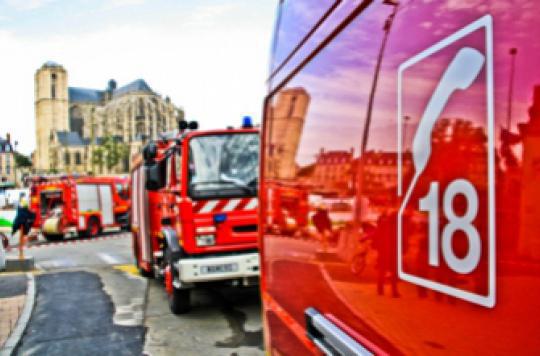A new report criticizes the increase in the number of emergency calls since 2008. To reduce costs, it recommends reviewing the reasons for intervention.

Too many unjustified interventions by French relief, such are the conclusions of a new interministerial report, commissioned by the Ministries of Health and the Interior. This one studies the various forms of answers brought to the emergency calls since the application of the “repository of organization of the assistance to the person and the urgent medical aid”, which governs the procedures of appeal to the 15 and the 18 in France. Result: as part of the 10 billion savings requested from local authorities by 2017, emergency services will have to rationalize their costs and reduce the number of interventions.
An inflation of calls
This task is all the more delicate given that since 2008, the number of emergency calls has continued to increase. Between 2008 and 2012, the 15 registered an increase of 28%, with 21 million annual calls received. For the 18th, this increase is less marked (+ 14.3%) but corresponds to 24 million calls per year. The report therefore proposes a reduction in the reasons for leaving ambulances and firefighters to cope with this inflation of calls, without exploding the budget.
Two avenues are put forward by the report: first, to reduce the number of “reflex departures”, engaged by firefighters to provide immediate assistance to victims, without going through the SAMU. Normally, the latter, as a medical regulator, is responsible for allocating resources and deciding on interventions. The exits of fire trucks during this type of departure are singled out because they are expensive and sometimes unnecessary, in the case of certain emergencies.
Empower the “rescued”
Secondly, it is on the public that the report recommends taking action, by launching an awareness campaign in 2015, to better explain the use of emergency numbers. Because, according to the authors, a quality emergency service is certainly the responsibility of rescuers, but also of “rescued”, who must learn to identify situations that require assistance.
These conclusions worry health professionals, who fear that by being encouraged to limit interventions and rationalize costs, the health of the French and the quality of emergency services will suffer. For Dr Patrick Pelloux, president of the association of emergency physicians in France, the report raises false problems. Calling into question the reflex departures would not be responsible, insofar as several emergency situations are not already taken into account, as for example in the case of a stroke.
This report is therefore the latest in a long series of recommendations for the health sector, which divide, as the pressure to reduce costs intensifies.
.















